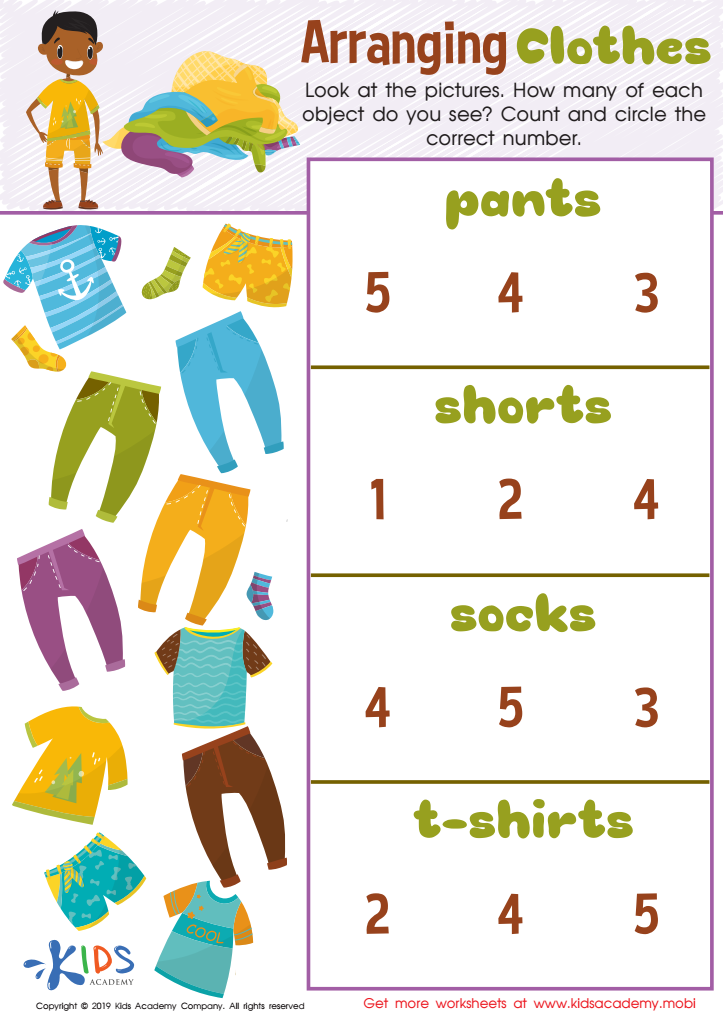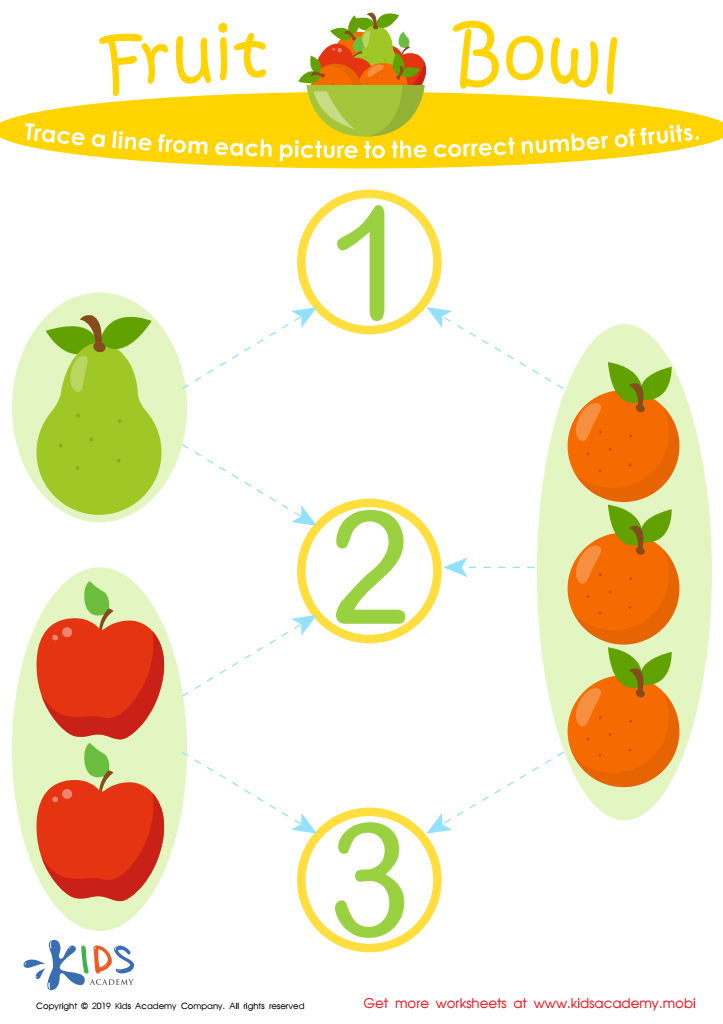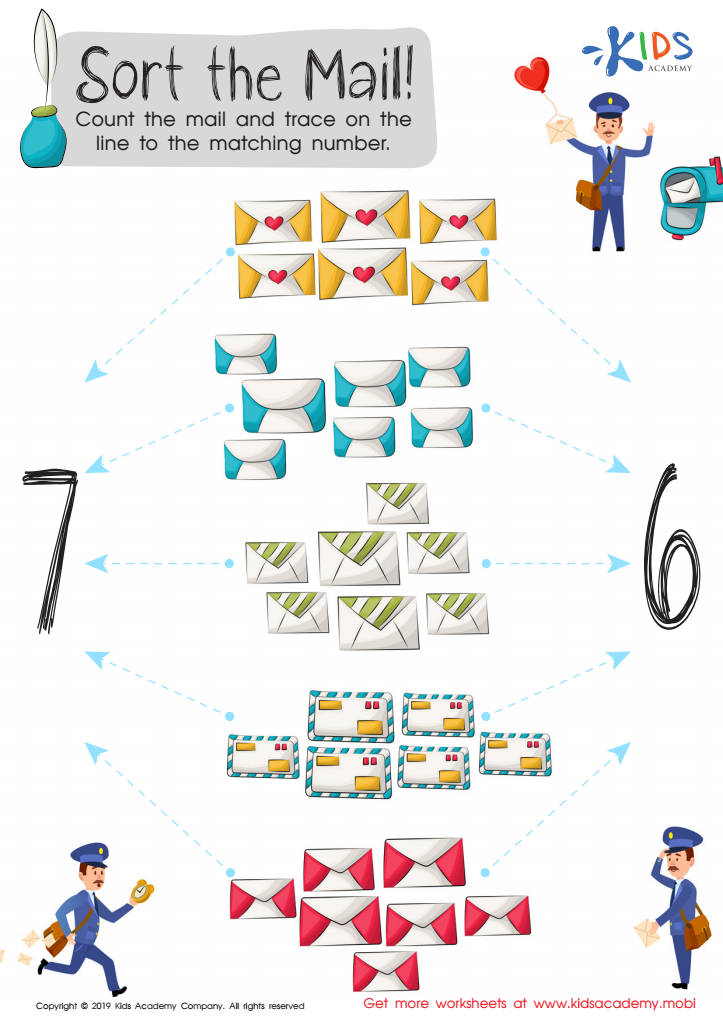Sorting skills Numbers 0–10 Worksheets for Ages 5-7
3 filtered results
-
From - To
Boost early math proficiency with our "Sorting Skills Numbers 0–10" worksheets, designed for children ages 5-7. Packed with engaging activities, these worksheets help young learners, in kindergarten to first grade, develop essential skills in sorting, counting, and number recognition. Each colorful worksheet offers varied exercises that challenge kids to order, group, and distinguish numbers from 0 to 10. Your child will enhance critical thinking and fine motor skills while having fun. Ideal for at-home practice or classroom use, these worksheets are a great resource to build a strong numerical foundation and intrigue young minds with the joy of learning.


Arranging Clothes Worksheet


Fruit Bowl Worksheet


Sort the Mail Worksheet
Teaching sorting skills for numbers 0-10 to children aged 5-7 plays a crucial role in their cognitive and mathematical development. Understanding sorting helps young learners recognize patterns, categorize objects, and make sense of the world around them. This foundational skill extends beyond numbers; it cultivates logical thinking and problem-solving abilities, essential for future academic success.
When children practice sorting numbers, they enhance their ability to compare, classify, and order, which are vital components of early math education. Sorting numbers also aids in reinforcing their counting skills, as it requires them to differentiate between smaller and larger quantities accurately. For instance, grouping objects based on the number helps them grasp the concept of numerical value and sequence.
Moreover, sorting activities can be engaging and fun, fostering a positive attitude towards learning math. Interactive and hands-on experiences using everyday items or educational toys can make the learning process enjoyable, ultimately boosting children’s confidence and interest in math.
Parents and teachers who emphasize sorting skills empower children with a strong mathematical foundation, sharpen their analytical skills, and prepare them for more complex arithmetic concepts. Thus, caring about these skills provides children with tools they need to succeed both inside and outside the classroom.
 Assign to My Students
Assign to My Students





















